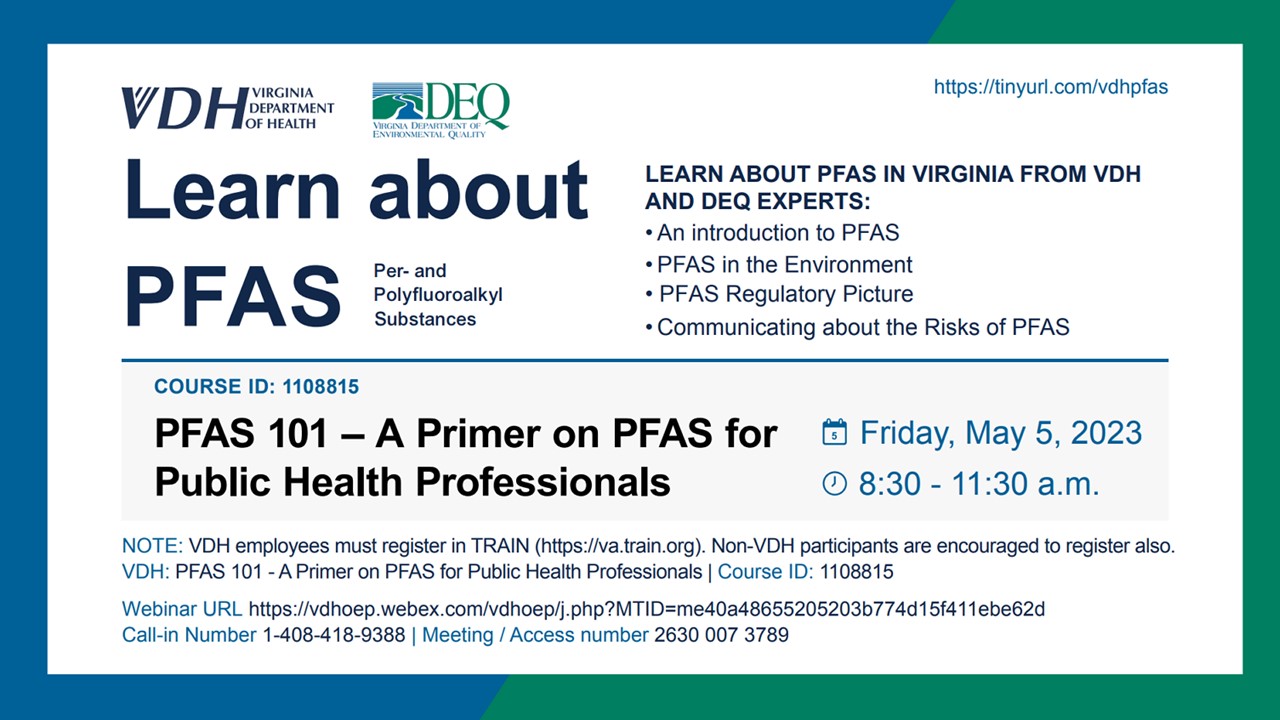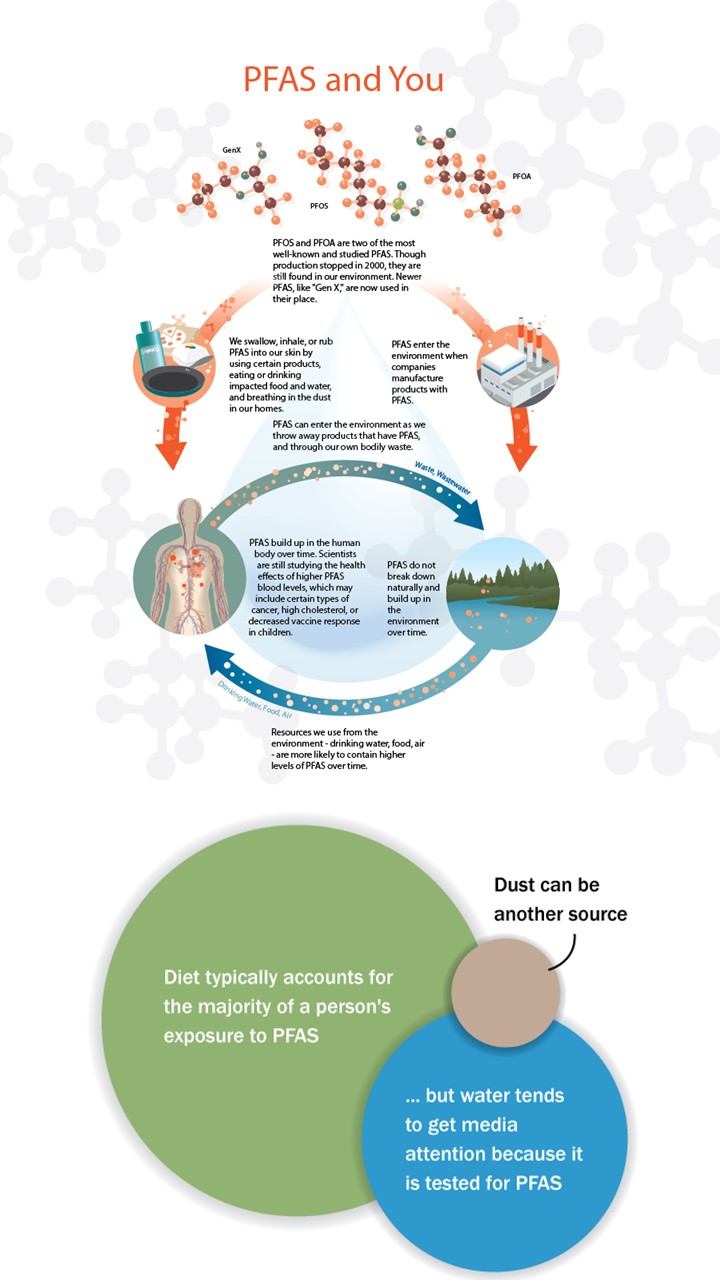
Feel free to view/download the presentation from the May 5, 2023 training.
PFAS 101 - A Primer on PFAS for Public Health Professionals is a three-hour webinar training which will cover the basics of PFAS. The webinar will be held on May 5th from 8:30 to 11:30am. Feel free to share with others using this flyer.
Per- and polyfluoroalkyl substances (PFAS) are a group of human-made chemicals that were created for a variety of household and industrial uses. PFAS can repel oil, grease, and water, so they have been used in protective coatings for many different products including food packaging, nonstick cookware, carpets and upholstery (stain-protectants), mattresses and clothing (water-proofing), and have also been used in fire-fighting foams. Some of the more commonly known PFAS are perfluorooctane sulfonic acid (PFOS) and perfluorooctanoic acid (PFOA). GenX chemicals are considered a replacement for PFOA and PFBS is considered a replacement for PFOS.
The following will be explored in the webinar training.
(1) PFAS Introduction: Naming Conventions; Physical and Chemical Properties, Production, Uses, Sources; Human Impacts & Risk Assessments
(2) PFAS in the Environment: Site Characterization; Fate and Transport; Sampling and Analysis; Treatment and Technology
(3) PFAS Regulatory Picture, Risk Management and Managing PFAS impacts in your community
(4) Communicating about the Risks of PFAS, and PFAS Case Study
The intended audience is Health Directors, Environmental Health Coordinators, Managers, Supervisors, EH Specialists, Emergency Coordinators, Public Information Officers (or individuals who have a role in communicating with the media) and others within VDH. Additionally, professionals from other state agencies are invited to attend. This training is not open to the general public.
Why Should PFAS Be Important To Me As A Public Health Professional?
Health effects from exposure to low levels of PFAS are not well known, but may include elevated cholesterol levels, interference with thyroid function, preeclampsia, and decreased fertility. PFAS may also affect the immune system and a developing fetus or child. Animals exposed to high doses of some PFAS have shown changes in the liver, thyroid, and pancreatic function, as well as some changes in hormone levels.
Meet Your Presenters
Brookie Crawford, Public Information Officer – Central Region, Office of Communications, Virginia Department of Health
Anthony Creech, Environmental Technical Programs Manager, Division of Onsite Water and Wastewater Services, Office of Environmental Health Services, Virginia Department of Health
Dr. Dwight Flammia, State Public Health Toxicologist, Office of Environmental Health Services, Virginia Department of Health
Julie Henderson, Director, Office of Environmental Health Services, Virginia Department of Health
Dr. Tony Singh, Deputy Director, Office of Drinking Water, Virginia Department of Health
Jeff Steers, Director of Regional Operations, Virginia Department of Environmental Quality

Register in TRAIN (VDH Participants)
VDH employees who attend this training must register in TRAIN. Non-VDH attendees are encouraged to register.
TRAIN Course Information:
VDH: PFAS 101 - A Primer on PFAS for Public Health Professionals | TRAIN Course ID: 1108815 | PFAS 101 - Training Flyer
Non-VDH Participants
Non-VDH participants are encouraged to register in TRAIN as it will document your participation. However, if you cannot register in TRAIN, the webinar access information is provided.
Webinar Url: https://vdhoep.webex.com/vdhoep/j.php?MTID=me40a48655205203b774d15f411ebe62d
Call-In Number: 1-408-418-9388
Meeting number (access code): 2630 007 3789
PFAS Resources
Per- and Polyfluoroalkyl Substances (PFAS) | Virginia DEQ
PFAS — Per- and Polyfluoroalkyl Substances (itrcweb.org)
Learn about PFAS | ATSDR (cdc.gov)
Drinking Water Health Advisories (HAs) | US EPA
Testing Food for PFAS and Assessing Dietary Exposure | FDA
Blood testing for PFAS | ATSDR (cdc.gov)
Everything You Need To Know About PFAS in Your Water (premierh2o.com)
What are PFAS, and why is the EPA warning about them in drinking water? - Virginia Mercury
Have A Question?
Contact Donald Moore at donald.moore@vdh.virginia.gov
Sponsored By the Following:


